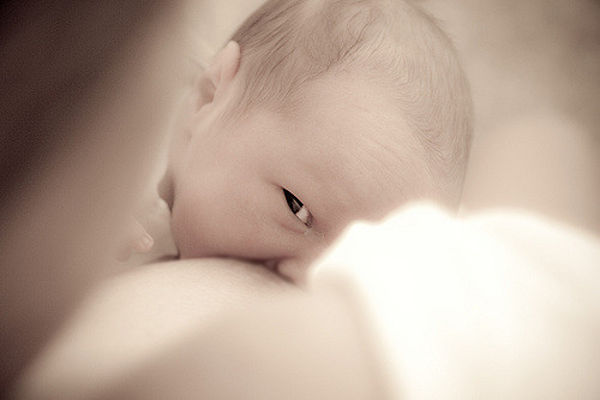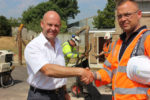Breastfeeding rates on the Isle of Wight are higher than average.
According to figures released by Public Health England (PHE), around 36% of Isle of Wight babies aged six to eight weeks were fed exclusively with breast milk.
In England, in average is 30%.
Almost half stop within 6-8 weeks
However, almost half of new mothers on the Isle of Wight stop breastfeeding within two months.
Between January and March 2018, GPs on the Isle of Wight asked 293 mothers at their six-to-eight week checkup how they were feeding their babies.
The figures, released by PHE, show that 148 mothers said they were not breastfeeding at all.
Benefits of breastfeeding
NHS guidelines recommend that babies are exclusively breastfed for up to six months at least.
They say breastfeeding reduces a baby’s risk of infection, sudden infant death syndrome, childhood leukaemia and even heart disease in adulthood.
Breastfeeding also has numerous health benefits for mothers, including lowering the risk of breast and ovarian cancer, diabetes and osteoporosis.
Extra support needed for some
PHE lead nurse Wendy Nicholson said:
“Breastfeeding provides the best nutritional start in life and is something that mothers and babies learn together.
“But we know that some mothers may need support, advice and encouragement to help them continue with breastfeeding.
“Health visitors, midwives and other health care professionals are well placed to link women to support within their local areas.”
Normalising idea of breastfeeding from an earlier age
According to Dr Mary Fewtrell, nutrition lead at the Royal College of Paediatrics and Child Health, it’s not just parents that need education and support.
She said:
“Adding things to the national curriculum is tricky, but it would be good to normalise the idea of humans feeding their babies like other mammals do.
“That could be introduced to children very early on. Throughout the education system breastfeeding should be discussed and normalised.”
Entwistle: “It’s a societal issue”
Baby Friendly Initiative advisor, Francesca Entwistle, said:
“You can’t just tell a woman to breastfeed. It’s not an individual issue for women, it’s a societal issue.
“We live in a culture where bottle feeding is the norm. In some places you have fourth generation bottle feeders.
“We need a more systematic, nationally led culture shift in the way we feed our babies.”
Article shared by Data Reporter as part of OnTheWight’s collaboration with Press Association and Urbs Media





